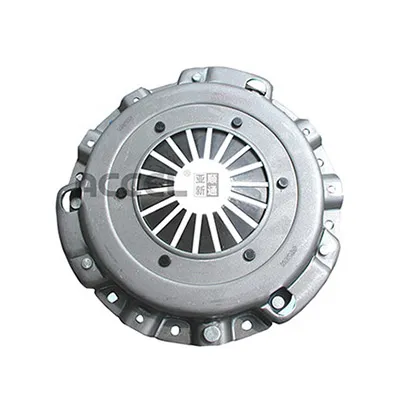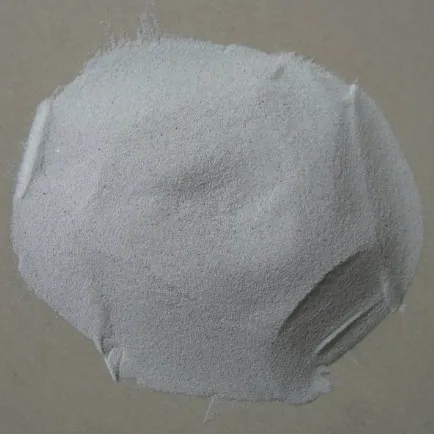- Introduction to fundamental properties of volcanic minerals
- Technical specifications and performance advantages analysis
- Comparison of key suppliers and material characteristics
- Customizable solutions for specialized industrial requirements
- Demonstrated applications across multiple sectors
- Material preparation and safety handling protocols
- Future outlook for mineral-based materials in industrial use

(raw perlite)
Exploring the Fundamental Properties of Raw Perlite
Raw perlite originates as volcanic glass formed when obsidian hydrates over geological timescales. Its volcanic origin creates unique properties that become technologically valuable when processed industrially. Before expansion, raw perlite
appears as gray-to-black granules containing 2-5% water. This trapped moisture becomes crucial during the thermal expansion process where material is flash-heated to approximately 1600°F (871°C), transforming into lightweight, insulating pure perlite.
Commercially mined deposits exist in regions with volcanic history, with the western United States accounting for over 65% of global production. Raw perlite differs from raw vermiculite in geological formation despite both belonging to the hydrated silicate mineral category. While perlite features amorphous volcanic glass structures, vermiculite possesses a layered mica composition that expands differently when heated. Processing plants maintain precise humidity controls during initial crushing stages since moisture content directly affects expansion ratios during final heat processing.
Technical Specifications and Performance Advantages
The thermal conductivity of expanded pure perlite ranges between 0.027-0.040 W/m·K at room temperature, outperforming numerous synthetic insulating materials. Unlike petrochemical alternatives, this naturally occurring mineral maintains stable thermal properties at temperatures exceeding 1800°F (982°C), making it indispensable for fireproofing applications. Industrial tests show raw perlite expands up to 20 times its original volume during thermal processing, creating microporous structures that deliver remarkable acoustic dampening qualities.
Material scientists document several distinct advantages:
- Neutral pH range (7.0-7.5) enabling use without contaminating sensitive systems
- Surface area exceeding 10,000 cm²/g after expansion
- Zero combustible content meeting stringent fire safety standards
- Crystalline silica content below 1% for respiratory safety
- Bulk density as low as 50-150 kg/m³ in horticultural grades
Comparative Analysis of Industrial Minerals
| Property | Raw Perlite | Raw Vermiculite | Pure Perlite (Expanded) |
|---|---|---|---|
| Expansion Ratio | 1:15 to 1:20 | 1:8 to 1:12 | N/A (Post-expansion) |
| Operating Temp Limit | N/A (Pre-expansion) | 390°F (199°C) | 2000°F (1093°C) |
| Moisture Retention | Minimal | High (exceeding 200%) | Low-Moderate |
| Typical Production Cost/Ton | $55-70 | $85-110 | $120-150 |
| Cation Exchange Capacity | Negligible | 100-150 meq/100g | Negligible |
Customizable Industrial Solutions
Processing facilities routinely manufacture tailored raw perlite formulations meeting specific industry requirements:
- Construction-grade: Precision grading between 50-200 mesh with fire-resistant additives for spray-applied plasters achieving 3-hour fire ratings per ASTM E119 standards
- Horticultural specifications: Custom blends combining coarse pure perlite with raw vermiculite optimizing moisture control for specific propagation environments
- Filtration systems: Hydrocyclone-processed granules with calculated pore geometry removing impurities down to 5 microns in beverage production
- Cryogenic applications: Surface-modified particles handling liquid nitrogen temperatures (-320°F / -196°C) with minimal dusting
Leading suppliers operate dedicated expansion facilities near major industrial zones, enabling customized heating profiles that create distinct cellular structures. Processing parameters are adjusted based on application requirements:
Documented Industrial Applications
The construction sector currently consumes approximately 65% of commercially available raw perlite. Notable applications include composite insulation boards achieving thermal resistance values of R-4 per inch and fire-rated spray coatings that reduced structural damage by 78% in certified fire tests. Agricultural consumption has increased 32% since 2018, driven by commercial hydroponic operations utilizing pure perlite as a sterile rooting medium.
Industrial filtration applications demonstrate particularly impressive performance metrics:
- Pharmaceutical pre-filtration achieving 99.97% particulate removal
- Swimming pool systems reducing backwash cycles by 45% compared to sand filtration
- Food processing filters handling flow rates exceeding 15 gallons/minute/ft²
- Craft brewery operations extending filter service life by 300%
Material Processing and Handling Procedures
Industrial users require precise handling protocols to maintain material efficacy. Bulk raw perlite shipments typically arrive in 2,000-pound super sacks that necessitate climate-controlled storage below 75% humidity. Expansion facilities report optimal results when charging rotary kilns at feed rates between 3-5 tons per hour using carefully calibrated temperature profiles. Post-expansion processing typically involves:
Stage 1: Sieving through 12-mesh screens to remove non-expanded material
Stage 2: Pneumatic separation to achieve desired bulk densities
Stage 3: Precision milling for applications requiring sub-100 micron particles
Stage 4: Bagging under negative pressure to control dust exposure
Why Raw Perlite Remains Essential in Industrial Applications
Industrial consumption of raw perlite has grown steadily at 5.3% annually despite emergence of synthetic alternatives. This growth reflects fundamental advantages: naturally fire-resistant qualities surpassing petroleum-based products, renewability through volcanic deposits worldwide, and chemical stability ensuring material performance decades after installation. Future development focuses on enhanced processing techniques that reduce energy consumption during expansion while maintaining output quality.
With production facilities expanding across four continents and refining capacity increasing 8% year-over-year, raw perlite continues serving industrial needs from foundation to finish. As manufacturing sectors seek sustainable material alternatives, the mineral's unique combination of thermal protection, filtration efficiency, and horticultural utility ensures continued relevance in global markets. Producers anticipate specialty grades targeting semiconductor manufacturing and battery component insulation as the next frontier for pure perlite applications.

(raw perlite)
FAQS on raw perlite
Q: What is raw perlite used for?
A: Raw perlite is an unexpanded volcanic rock primarily used in industrial filtration, construction materials, and as a precursor to expanded perlite. Its porous structure and natural filtering properties make it ideal for water purification and chemical processing. Additionally, it serves as a base ingredient for insulation and horticultural products after heat expansion.
Q: How does raw vermiculite differ from raw perlite?
A: Raw vermiculite is a hydrous phyllosilicate mineral with natural laminar layers, whereas raw perlite is a volcanic glass with higher silica content. Vermiculite expands into accordion-like flakes when heated, while perlite pops into lightweight white granules. Both are used in similar applications like construction and horticulture but offer distinct moisture retention and aeration properties.
Q: Can pure perlite be used directly in gardening?
A: No, pure perlite requires industrial expansion at high temperatures (900°C) to become usable in horticulture. The raw mineral’s dense, unpopped form lacks the porosity needed for soil aeration and drainage. Only expanded ("popped") perlite is applied to improve substrate structure, root oxygenation, and water management in gardens.
Q: Why choose raw perlite over synthetic alternatives?
A: Raw perlite offers chemical inertness, natural origin, and cost efficiency compared to synthetic materials. Its non-toxic, pH-neutral properties ensure compatibility in sensitive applications like agriculture or filtration without chemical leaching. Sustainability advantages also arise from its abundant volcanic sourcing and minimal processing requirements.
Q: Is raw vermiculite safe for organic farming?
A: Yes, when certified asbestos-free, raw vermiculite is approved for organic agriculture per USDA/NOP standards. Its natural ion-exchange properties enhance soil fertility without synthetic additives. However, rigorous sourcing checks are essential due to historical asbestos contamination concerns in some vermiculite deposits.
-
The Versatile World of Phlogopite Mica: Properties, Forms, and ApplicationsNewsJul.14,2025
-
The Versatile Applications of Calcined Mica: From Decoration to Industrial UseNewsJul.14,2025
-
The Role of Muscovite Mica in Industrial Insulation MaterialsNewsJul.14,2025
-
The Benefits of Using Expanded Clay Pebbles in Hydroponics and Soil GardeningNewsJul.14,2025
-
Innovative Applications of Mica Flake in Paints and CoatingsNewsJul.14,2025
-
Gardening Expanded Clay Usage: A Complete GuideNewsJul.14,2025
-
The Use of Natural Mica Powder in Skincare ProductsNewsJun.11,2025








